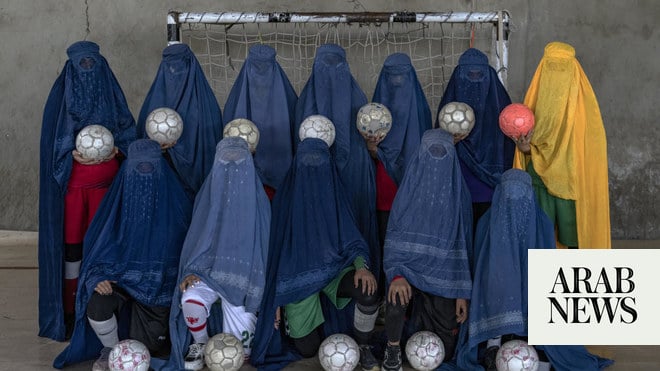
UK government cites housing shortages as former Afghan allies denied chance to reunite with families
LONDON: British ministers have been accused of failing to honor their promises to Afghan refugees by refusing to accommodate their family members.
About 12,000 Afghan refugees are still living in hotels paid for by the British taxpayer as ministers blame a housing shortage for the delay.
When Afghanistan fell to the Taliban last year, the UK government told refugees that their family members would be allowed to join them once they were evacuated.
But The Times newspaper said that 10 months after the collapse of Kabul, about 6,500 refugees were still blocked from joining family members in the UK because they had yet to be granted refugee status.
The newspaper quoted government sources saying that ministers were forced to adjust the policy of family reunion because the average family size of those involved is 6.7, and regulations on housing rules meant that bigger homes were needed to shelter them.
By contrast, the average household size in Britain is three, and much of local government housing is developed around this figure.
Hossain Saeedi, 37, told The Times that he was evacuated with his wife and children, but his request to bring in his ex-wife, who is mother to his son, was denied.
He said: “The cases of Afghan family reunion have been overshadowed by the new scheme for Ukrainian refugees.”
The 6,500 Afghans barred from refugee status were brought in on the Home Office’s Pathway 1 scheme. In September, the government indicated that family members would be allowed to join other refugees, but has failed to demonstrate how this would be achieved.
The Home Office said that the 6,500 evacuees from Afghanistan who were unable to travel with their relatives would be given “options” for rejoining them “in due course.”
“Around 6,500 people were brought to safety in the UK during and after the Afghanistan evacuation who are eligible for the Afghan citizens resettlement scheme and received leave to remain under Pathway 1. While they do not hold refugee status, those who were evacuated were able to bring their immediate family members, including spouse or partner and children under 18 years old,” the government said.
The delay in reuniting families comes as a letter by several leading charity figures accused the government of treating Afghans unfairly compared with Ukrainians, who have received two visa schemes for reuniting family members, warning that this could have severe consequences on their mental health.
The letter, signed by the CEOs of Amnesty International, British Red Cross, Oxfam, Refugee Council, Safe Passage, Student Action for Refugees, UNHCR and Voices Network, said: “Ten months later these families remain separated. This is despite the government indicating, as long ago as September 2021, that family members would be eligible to join people who had been evacuated.
“Prolonged separation is distressing for families and can have a severe impact on mental health.
“We saw how the government acted to bring Ukrainian families together through the Ukraine Family Scheme. They must now act with the same urgency to safely reunite Afghan evacuees with their loved ones.”












